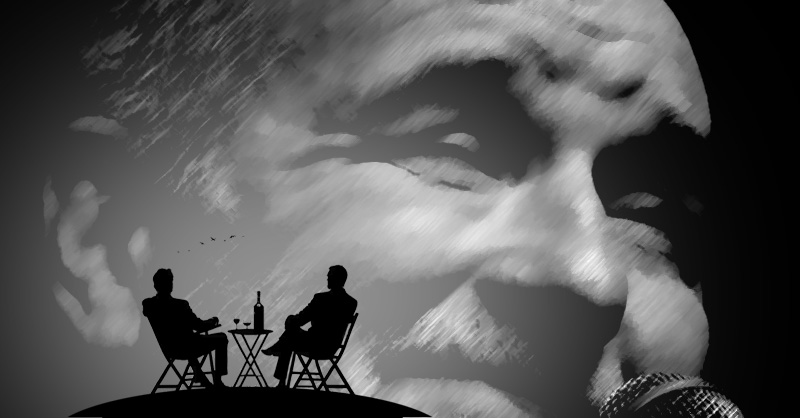Polako, komšije

When we moved here, he was the only neighbour we somehow never properly introduced ourselves to. I don’t know why. He seemed a bit distant, in his big, lonely house on top of the hill.
His family has lived in this town for generations. He is older, divorced and has grownup sons. That’s what I heard.
The first time we spoke was years later. It was morning, early in the pandemic. He was displeased with something. He wasn’t wrong, but he was unpleasant.
A few days later we spoke again. This time it was me who was displeased and not wrong. And he learned that I, too, can be unpleasant.
We would not speak again for another year.
Such things don’t bother me much. I’m from the Balkans. I don’t dread conflict. I needn’t be friends with everyone. C’est la vie.
Polako, komšije
Ne može samo da se uđe
Da se ruši tuđe
A short intermission.
Before I continue, I must introduce you to Đorđe Balašević, in case you’ve never heard of him.
Although my name literally means “patriot” (thanks, dad), I would never claim to be one (sorry, dad). When foreigners ask me about my mother tongue, I usually tell them the only thing they’re missing if they don’t understand Serbian is specific humour that gets lost in translation, though this is true for all languages.
But then I add: “And Balašević.”
Đorđe Balašević was an anomaly. A glitch in the Matrix.
It seems as though Serbian was invented, so that he could write his poetry.
I can live with the fact I will never be able to understand a certain Mongolian joke if I don’t learn Mongolian, but if there is another poet out there who uses his language as masterfaully as Balašević used his, I would want to learn it if only to be able to go to his concert and sing.
End of intermission.
The following winter, Đorđe Balašević died from Covid-19. When his death was announced, my neighbour, normally a quiet man, began playing his music as loudly as physically possible. He must own some concert speakers, because the whole neighbourhood under lockdown had no choice but to listen to Balašević for hours.
I didn’t mind, of course. I was standing outside my house, tipsy, listening, singing, perhaps even shedding a tear. I saw my neighbour standing in front of his, likely in the same state.
Spring came and lockdowns were lifted. Sun was shining again. I received a call from an unknown Slovenian number. This was before scammers were using local telephone numbers, so I picked up. It was my neighbour.
“I don’t know what had gotten into me that morning last year, but I assure you I’m not like that”, he said.
I went outside, walked across my lawn, then up the hill to his house. We sat on his porch and had some cognac. We chatted about weather and Bitcoin. Then a pause lended me an opportunity:
“In February, I heard you play Balašević…”
“I felt as if someone close to me had died”, he explained.
“I felt that way, too”, I said.
My neighbour and I haven’t spoken since that day, but we do greet each other cordially when we’re both mowing the lawn at the same time (which, statistically speaking, happens unusually often in Slovenia).
Sometimes, when I see two people being unpleasant to each other online, I can’t help but wonder:
What if they both miss Balašević?
